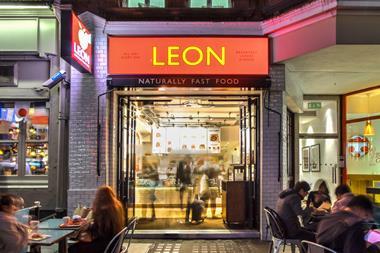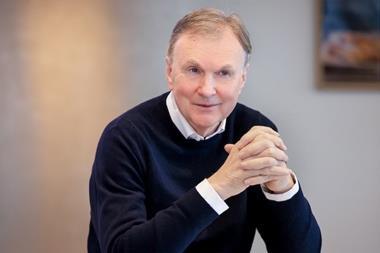"It could have been worse." Thus Booker CEO Charles Wilson neatly summed up the industry's response to Tuesday's Emergency Budget.
The rumour mill had been in overdrive in the run-up, with fears that tobacco and alcohol would be slapped with a further 5% duty hike; VAT would be extended to cover food; capital gains tax would shoot up to 40%; and every last quango under the sun would be obliterated, regardless of its role.
But in reality George Osborne had a few sweeteners stashed away in his red briefcase, along with some much more bitter pills. So, just how will the measures affect the industry?
No one truly knows, of course, with commentators arguing that taking steps to reduce public spending by £32bn a year by 2014/15 while simultaneously raising taxes was, at best, a huge but necessary gamble; at worst, a disaster.
The most immediate impact for the industry will come from the hike in VAT. "We could see consumer spend drop by billions," says Richard Fleming, KPMG's UK head of restructuring, who oversaw the administration of Threshers. While not extended to food, as many had predicted, the VAT hike, which will constitute a five percentage point rise in a year, will hit 50% of SKUs in c-stores as well as the multiples' significant non-food offerings.
"Those retailers teetering on the edge may find the VAT rise pushes them over. While we have seen a lull in insolvency numbers in recent months, we expect this trend to reverse, particularly in retail and leisure where improving consumer demand is vital," he added.
Others feel the VAT increase once again highlights the defensive nature of grocery as a category, however.
"While far from immune from the tidal force of VAT on consumer expenditure, the food retailers should cope with the measures, and are well positioned to capture share in the 20% VAT era," says Shore Capital analyst Clive Black.
The timing of the increase, to take effect on 4 January, also gives the industry more breathing space than it was granted when VAT reverted to 17.5% on 1 January 2009. "The delay also allows retailers time to sell through products with price marks," says ACS CEO James Lowman.
But Sainsbury's CEO Justin King was less impressed: "We're pleased the government has listened to our argument that widening the scope of VAT to include food would hit the poorest hardest.
"However, while it has provided plenty of notice, the date of the change is somewhat disappointing as it is so soon after Christmas and right in the middle of the January sales period."
Alcohol and tobacco will also be impacted by the rise in VAT, exacerbating the duty hikes imposed in the previous Budget.
And though tobacco and alcohol were spared further ramps in duty, a sense of doom appears to be hanging over the drinks producers, as Osborne promised to address the issue of binge drinking following a further review, while also continuing with the duty escalator that saw his predecessor Alistair Darling barred from pubs across Britain.
Drinks producers are still "under the shadow" of Darling's policy, which will hit alcohol with a 2% above-inflation hike every year until 2015, says Molson Coors CEO Mark Hunter. "For now, this feels like a stay of execution, rather than a reprieve for beer."
Osborne also chose not to press on with Labour plans to raise cider duties to a par with other drinks, reigniting the row over what many claim gives cider an unfair advantage. Hunter says presently a pint of 4% lager pays twice as much duty as a similar-strength pint of cider.
"Beer continues to be disadvantaged by an uneven duty playing field and today's reversal of the 2p per pint rise in cider duty without a corresponding reduction in beer duty makes the uphill struggle for beer more severe," he added.
There is also little to toast from the shoppers' point of view.
An Asda poll showed that eight out of 10 mums feel they will be worse off as a result of the Budget, and the swingeing public sector cuts will inevitably lead to job losses. "Consumers will continue to feel stretched," says Booker's Wilson.
However, if the primary objective of the Budget was to safeguard the UK's cherished AAA credit rating, then so far at least it has succeeded. This should keep interest rates low, helping businesses, particularly those that are highly geared. And the Chancellor's efforts are expected to help strengthen the pound on the international money markets, which should help to keep import prices down.
"If sterling strengthens, then this will help the food industry as it buys in commodities," says Nick Peksa of Mintec. However, if the pound strengthens on the money markets it will make life harder for the UK's food exporters, which are expected to help the economy to recover, he adds.
Osborne's other big aim is, of course, to stimulate the economy, and corporation tax will be reduced from the current rate of 28% by one percentage point a year over the next four years, to make the UK a more attractive place to do business and to encourage profits to be reinvested in capex, R&D or pricing.
Following on from the Tories' pre-election victory in blocking Labour's 1% hike in National Insurance contributions from employers, the NI threshold for employers will also be increased, cutting the costs associated with staff on salaries of less than £20,000.
Another move on NI specifically addresses the impact of the economic downturn on regions such as the north east and north west. Start-up businesses in regions outside the south east and east of England will not have to make national insurance contributions on the first £5,000 of their first 10 staff, to encourage entrepreneurs to set up shop in depressed areas.
Indeed, Osborne threw in the most sweeteners for start-up businesses, reducing corporation tax for small businesses firms with a turnover of less than £300,000 a year from 21% to 20%. Darling had planned to increase this to 22%.
In the meantime, Osborne's moves on capital gains tax were a mixed bag, with the Chancellor increasing exemption rates for entrepreneurs from £2m to £5m and pushing the maximum rate up to 28%, a lot less than the 40% rate originally proposed by the Liberal Democrats.
But the increase could nevertheless spell trouble for the independent sector, warns Lowman. "This is bad news because for many independent retailers the shop is the pension plan and this will effectively take away some of their hard-earned savings."
The hike in CGT could also attract investors to the fine wine market, which is exempt from the tax. However, this is not expected to feed through to the drink-now market, so no more than a handful of specialist fine wine dealers are likely to benefit.
Amid all the uncertainty, one thing is for sure: with VAT going up on 4 January, we can at least look forward to a merrier than usual Christmas period .
It's what's going to happen afterwards that is causing the headaches, with some voicing concerns that dented consumer confidence and public sector job losses could send us hurtling into a double-dip recession. And that would be the bitterest pill of all to swallow.
Key points
● VAT: will rise from 17.5% to 20% on 4 January. It wasn’t extended to cover food, children’s clothing, books and newspapers
● Duty: Tobacco, alcohol or fuel escaped hikes. The Chancellor is considering rises on products linked with binge drinking. 10% hike on cider duty reversed
● National insurance: Threshold increased by £21/week above indexation
● Capital gains tax: Top rate upped to 28% from 22 June
● Entrepreneurs’ tax rate: 10% rate extended to first £5m
● Corporation tax: Rates will come down by one percentage point a year from 28% a year over the next four years
● Small companies’ tax rate: Cut from 21% to 20%
The Emergency Budget wasn’t as bad for the grocery industry as some had feared, but it has some worrying implications, reports Peter Cripps
Sign in to comment on this article
Not logged in before? Register for FREE guest access today.
You will be able to:
- Read more stories
- Receive daily newsletters
- Comment on stories
Advert


















No comments yet